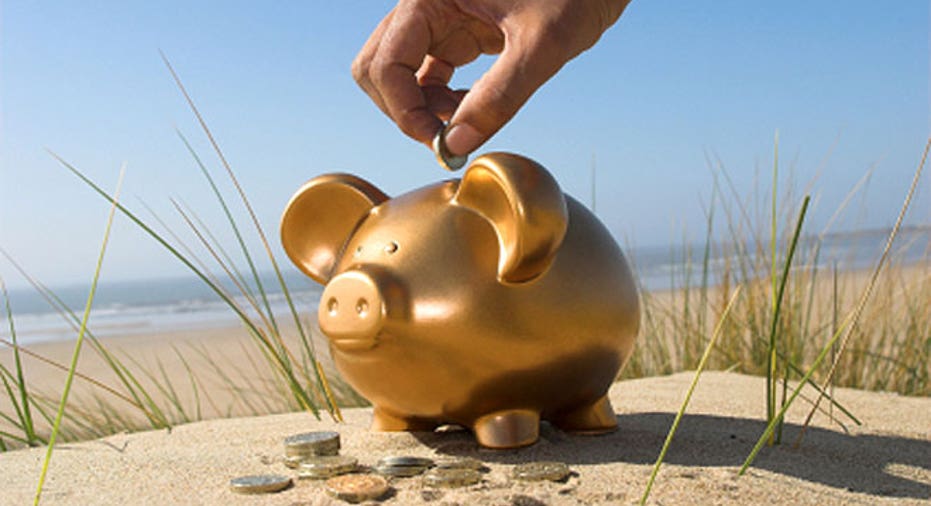Survey: Are You Saving for Emergencies?

Wages may be on the rise, but a record-high percentage of Americans still aren't socking away those gains for life's unexpected crises.
When asked about their emergency savings, 29 percent of Americans reported they had none, according to a survey that accompanied Bankrate's Financial Security Index for June. That's the highest level in five years of surveying and up from 26 percent last year. Another 21 percent said they had some savings but not enough to cover three months of expenses, and 13 percent didn't know how much they had or declined to answer.
Only 22 percent said they had enough to pay for at least six months of expenses, which is generally considered by personal finance experts to be the amount needed for a satisfactory cushion.
"These results are further evidence that Americans remain woefully under-saved for unplanned expenses," says Greg McBride, CFA, Bankrate's chief financial analyst. "And rather than progressing, (Americans) are moving in the wrong direction.
"Nothing helps you sleep better at night than knowing you have money tucked away for a rainy day," McBride says.
Despite their lack of emergency savings, Americans are feeling good about their overall financial health. The Financial Security Index has surged this year, with 13 straight months in positive territory.
More saving power
The index results come as Americans' capacity to save appears to be improving. The economy last month added 280,000 jobs, much more than expected, and wages climbed 2.3 percent from April 2014 to April 2015, according to the federal government.
Yet, only some groups appear to be saving. For instance:
- Those 50 years or older are more likely than their younger counterparts to have amassed enough savings to cover six months of expenses or more. McBride notes that's because they've had more time to save up.
- However, those under 30 are actively saving; they were the most likely to have enough to cover three to five months of expenses.
- Not surprisingly, income level is a great predictor of emergency savings. Fifty-three percent of those making less than $30,000 a year had no emergency savings. That's nearly twice as much as the $30,000-$49,999 group; more than three times as much as the $50,000-$74,999 group; and more than four times as much as the $75,000-plus group.
- Emergency savings also increases with more education. College grads are more than twice as likely to have six months or more in expenses built up than those with a high school degree or less. The latter is more than four times as likely to have no savings as those who graduated from college.
Bankrate's survey was conducted by Princeton Survey Research Associates International from June 4 to 7. It included 1,000 adults living in the continental U.S. and has a margin of error of plus or minus 3.7 percentage points.
How to catch up
If you need to bulk up your emergency savings, start with incremental goals, says Bruce McClary, spokesman for the National Foundation of Credit Counseling. Track your spending and find where you can reallocate money toward savings. Celebrate small victories, he says, and be ready for occasional setbacks.
"I think a lot of people are intimidated by the enormity of the amount when starting from scratch," he says. "They think: 'That's too big of a mountain to climb,' and that can be demotivating."
Have your employer deposit a small amount each pay period into a savings account, says Peter D'Arruda, president of Capital Financial Advisory Group in Apex, North Carolina.
"It needs to be a savings account and not a checking account because checking is too easy to take money out of," he says. "We have a real hard time identifying a 'want' from a 'need,' and the extra time it takes to get money from savings will make us think twice."
Financial picture remains rosy
Despite the underfunded rainy-day savings, Americans reported positive financial security in June, with the FSI hitting its third-highest level on record. Americans felt good about their jobs, net worth, debt levels and overall financial situation -- all categories that improved from a year ago.
Their comfort level with their savings remained the only weakness. Americans were more likely to say that they were less comfortable with their savings than more comfortable, though the difference was within the survey's margin of error. That comes as no surprise, given the poor state of Americans' emergency savings.
"Having money when an emergency is happening helps you keep the focus on what is most important at that moment instead of worrying about going into debt," McClary says. "It brings a huge sense of relief."
Another way to grow that nest egg could be to refinance your debt and increase your cash flow. If that's the case, you may want to start with a free credit score at myBankrate.
Copyright 2015, Bankrate Inc.



















